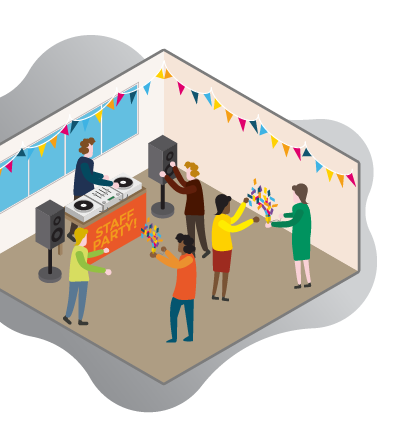
Section N – Expenses Payments Made to, or on Behalf of the Employee
There are six boxes for entries in this section: –
Travelling and subsistence payments
Employers should enter the total amount spent on fares, hotels, meals etc. Employees may then make claims for tax deductions.
Where employees intend to make claims for tax deductions they will need to ensure that they (and their employers) keep sufficient records to support such claims. This would include, for example, private and business mileage logbooks, amounts spent on meals, hotel bills and so on. All of these must be fully supported by bills and receipts which HMRC may wish to see.
If their payments do no more than reimburse legitimate business expenses, employers may wish to apply for a dispensation. If agreed this can save work for both employer and employee.
Entertainment
There is a popular misconception amongst employers that entertaining expenses are not taxable because they are disallowed in computing the employer’s tax bill.
In the absence of a dispensation employers must always declare all amounts which relate to entertaining. It will then be open to employees to make claims for tax deductions.
Claims made by employees are subject to the wholly necessarily and exclusively rule. Care must be taken as personal entertaining (e.g. spouses, partners, colleagues or business acquaintances) is not allowable for tax purposes. There must be genuine business reasons on each occasion. Full records must be available to support claims. HMRC may wish to have full details of the circumstances, including who was entertained on a particular occasion, the reason for the entertainment, and how much was spent.
Employers should also be aware that Class 1 NIC may also be chargeable on personal liabilities.
If you carry on a trade, business, profession or vocation, you should also enter:
- A tick in the box if any of the expenses payments have been, or will be, disallowed in your business’s tax computations.
- A cross in the box if none of the expenses payments have been, or will be, disallowed in your business’s tax computations – staff entertainment only.
General expenses allowance for business travel
Entries under this heading should include round sum and fixed rate allowances. They should be included within taxable pay for PAYE purposes. This does not mean that the amounts can be left off the P11D. The amounts should be shown in full, together with the appropriate entry to show that tax has been deducted.
Include payments made which are not readily identifiable as legitimate business expenses.
e.g. if you pay your employees a lump sum for all expenses they may incur in a tax year, without asking for receipts to justify that the lump sum payment was purely for business purposes.
All expenses must be shown on the P11D – even if they relate to business expenses. The responsibility for claiming the tax deduction lies with the employee – items should not be omitted from the P11D because they are “thought to be allowable” – unless a dispensation has been agreed.
Payments for use of home telephone
Employers must enter the full costs of line rental and all private calls associated with home telephones that that have been reimbursed to their employees, if the phone line is in the employee’s name, Class 1 NIC’s would also be due on these reimbursements.
However if the employer paid for a second line in the employee’s home to be used purely for business purposes, no tax or NIC liabilities would arise.
Non-qualifying relocation expenses
Enter any amounts of non-qualifying relocation expenses that have not previously been reported in section M.
Other expenses
This is the final catch-all section to report any items not previously reported elsewhere on the P11D form. Examples of what can be entered here include: –
- National Insurance contributions
- Ancillary services provided with living accommodation
- Private accountancy bills
- Employee’s legal fees
- Wages for personal or domestic staff e.g. chauffeuring costs
- Cost of work carried out at the employee’s own home or on their property by the employer’s workers or contractors.
- Employee’s traffic and parking fines